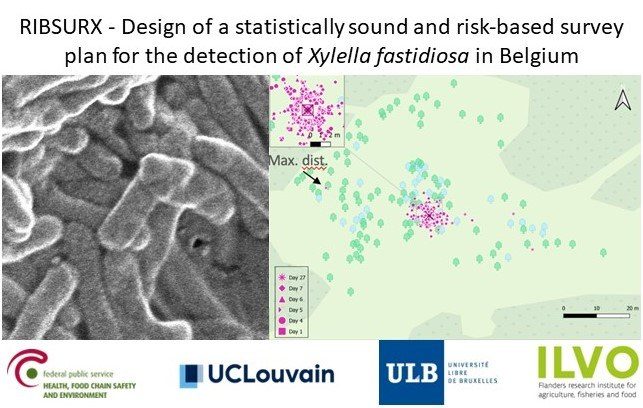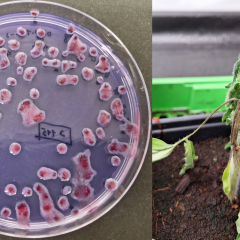Research project Design of a statistically sound and risk-based survey plan for the detection of Xylella fastidiosa in Belgium

General introduction
Xylella fastidiosa (Xfas) is one of the most dangerous bacterial plant pathogens associated with serious diseases in a wide range of plants. In 2013, a strain of the bacterium was, for the first time, detected on European territory (Italy), causing a dramatic outbreak of Olive Quick Decline Syndrome. In 2020, at the request of the European Commission, EFSA published specific guidelines for conducting statistically sound and risk-based surveys of Xfas to control the spread of the disease. So the goal of the project is to provide our "risk managers" with practical tools for monitoring Xfas in our country. From Europe, EFSA coordinates everything. In 2020, in order to better monitor and control the spread of the disease, EFSA published, at the request of the European Commission, specific guidelines for conducting statistically based and risk analysis-based surveys for the detection of Xfas. It is these guidelines that Belgium must operationalize, taking into account, among other things, the host plants and vectors present, and the suitability of the climate.
Research approach
RIBSURX follows and completes previous research in Belgium, with the objective of providing practical tools to risk managers for monitoring Xfas. First, the Belgian host plant population will be characterized and relevant risk factors and epidemiological units for Belgium will be identified. Furthermore, the project aims at determining the sensitivity of the sampling and analysis methods used. Finally, based on this information, adequate sample size will be calculated for the implementation of a reliable detection survey under Belgian conditions. This will be done using the RiBESS+ tool developed by EFSA.
Relevance/Valorization
The general EFSA guidelines contribute to harmonisation of the Xfas surveys across EU Member States. Considering that survey implementation is the responsibility of the Member States and that the data required for survey design are available at national level, the EFSA approach should be tailored to each country’s specific situation. In this context, the RIBSURX project has provided different scenario’s for sample size calculation and sample allocation in the epidemiological units at Belgian level, which will assist the National Plant Protection Organization (NPPO) in conducting statistically sound and risk-based surveys for the detection of Xfas.






